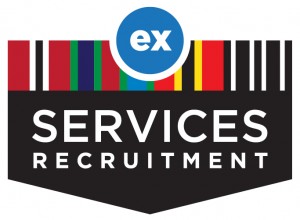The best ways to keep in touch with placed candidates
This week's blog is about building relationships in the recruitment process and then maintaining them post-placement takes skill and experience. Discovered on Seek, Written by
'Best practice
For Tim Venn, General Manager - Projects and Operations (Victoria) at Davidson, keeping in touch with a placed candidate is just‘101 good practice’. “This is especially true in Melbourne, where even if people leave the city for a period, they normally return,” he says.
“If you don’t keep in contact, it can all feel transactional,” Venn adds. “We don’t want them to think, ‘we’ve satisfied our client, and now you’re not important anymore’.”
Penni Hlaca, Manager for New Zealand Southern Region at Stellar Recruitment, agrees. She likens what she does to the ‘after sales service’ you would expect when buying any product or service.
“I always communicate to a new candidate – or a new client – that my service doesn’t stop with placement. “We’re engaging in a relationship that shouldn’t stop when we send an invoice.”
Building good relationships
“On a human level, moving jobs is a stressful thing,” says Venn, who also keeps in touch with unsuccessful candidates. “Plus, candidates and clients are equally important. If you have a great relationship with them, you’ll feel comfortable about calling them again, and they’ll feel comfortable about taking the call.”
Feedback in the early days of a new placement
Keeping in touch with placed candidates – and clients – in the early days of a new job is an ideal way of ironing out any niggles in the process. It’s also good for ensuring that induction and training are underway properly, and a useful way of communicating positive or constructive feedback between candidate and client.
“If a candidate expresses concerns about a new position, I always suggest they raise it with their manager or HR,” says Venn.
“I’ve had many occasions in the past where an ‘after care’ call has potentially stopped a candidate leaving after a very short time in a job,” says Hlaca.
Benefiting from staying in touch
“If you put someone in a new job, you’re changing their life, and we want to be a part of that – not only now but into the future,” says Hlaca. “A good consultant will want to track and enjoy a candidate’s career as it grows and develops.”
But this is not primarily about placed candidates becoming candidates again, although this may happen. A good ongoing relationship with a candidate can be a source of industry information, a source of other candidate referrals – and, over time, the candidate may become a hiring manager themselves.
How to best communicate
When it comes to the specifics of keeping in contact, both Venn and Hlaca are in broad agreement. Make the initial contact in the first few days, to ensure everything, especially the induction, went well.
After that, Venn allows the process to be driven by the candidate. “Some like to bounce off you, so maybe every month. Some don’t want to do it at all, which is fine.”
Whether you use phone or email is a personal choice, but always ensure that your contact doesn’t intrude on their work commitments, which means understanding when a good time is to talk. This is especially true if you’re meeting a placed candidate in person for coffee or lunch, where you should always check with their manager first to see if it’s okay.
Future jobs opportunities for placed candidates
Both Venn and Hlaca are clear that it’s only ethical to discuss future job opportunities with a placed candidate if the candidate approaches them first.
“If someone’s placed, I never approach them for another position,” says Venn. “If they apply to me, then I’ll have a conversation about what’s going on and where they’re at.”
“For me, it’s ethics first and foremost. Nothing will stand you in better stead in this industry than acting ethically.”'



